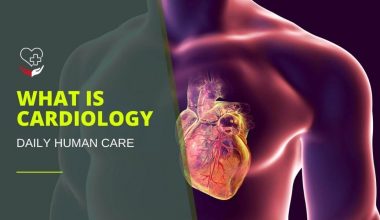This post by Daily Human Care is all about the understanding of hormonal changes in Perimenopause. Let’s start!

It’s not just you: perimenopause and menopause are not just the end of your period, they’re also a time when your body is going through a lot of changes.
As women age, our bodies go through a series of hormonal cycles that prepare us for pregnancy. But as we get older, those cycles change—and in some cases they don’t happen at all. This can cause a number of symptoms, from hot flashes and moodiness to trouble sleeping and memory loss.
The good news is that there are ways to manage these symptoms so you can continue living your life during this challenging time! In this blog post, we’ll cover all about perimenopause and different therapies that can help.
Navigating the Changing Tides
Perimenopause is a natural transition that happens as women age and their bodies begin to prepare for symptoms of menopause. It is important to understand that this transition can vary from woman to woman, and each individual’s experience can be unique. However, some common changes occur during perimenopause that is related to hormonal fluctuations.
During perimenopause, the levels of estrogen and progesterone in a woman’s body may rise and fall in an irregular pattern. This can lead to changes in the menstrual cycle, including irregular periods, heavier or lighter bleeding, or skipped periods. Women may also experience physical symptoms such as hot flashes, night sweats, vaginal dryness, or itching. These symptoms can be frustrating and may negatively impact a woman’s quality of life.
In addition to physical symptoms, perimenopause can also lead to emotional changes. Women may experience mood swings, irritability, anxiety, or depression. These changes can be challenging to manage and may require support from a healthcare provider.
It is important for women to seek medical advice if they experience any symptoms related to perimenopause. A healthcare provider can help evaluate and manage symptoms, provide guidance on lifestyle changes or alternative therapies, and discuss the benefits and risks of hormone therapy.
Different Types of Therapy and Their Benefits for Perimenopausal Women
Perimenopause is a time of change and uncertainty, which can make coping with it difficult. Fortunately, different types of therapy can help you navigate this period with grace and confidence. Here’s a quick rundown of the different kinds of treatment available and their benefits.
Cognitive behavioral therapy (CBT): CBT focuses on changing negative thought patterns and behaviors to improve mental health. This type of therapy can be beneficial for perimenopausal women who are struggling with anxiety or depression.
Mindfulness-based therapy: Mindfulness-based therapy encourages the practice of mindfulness to help manage stress and improve well-being. This type of therapy can be beneficial for perimenopausal women who are struggling with mood swings or irritability.
Hormone therapy: Hormone therapy may help relieve some symptoms of perimenopause by replacing declining estrogen levels. This type of therapy should only be considered under the guidance of a healthcare provider.
Alternative therapies: Alternative therapies, such as menopause supplements or acupuncture, may help relieve symptoms of perimenopause. However, it’s essential to consult a healthcare provider before starting any new treatment.
Group therapy: Group therapy can be a supportive and empowering way for perimenopausal women. This is to connect with others experiencing similar symptoms. This type of therapy can help promote validation and reduce feelings of isolation.
Therapy can be an important tool for perimenopausal women. This helps manage emotional symptoms and promote overall well-being. It’s essential to consider your specific needs and speak to a healthcare provider. They can determine the best type of therapy for you.
Takeaway
At the end of the day, perimenopause is a natural process that will affect all women. But, it can be managed and even enjoyed. If you are feeling anxious or depressed during perimenopause, talk to your doctor. Make sure they know what’s going on. Daily perimenopause supplements may be an option for you, but there are other ways to manage these feelings. You can even try talking or cognitive behavioral therapy if medication is not available.
The most important thing to remember is that this is not a life sentence! You will get through it and come out more vital than ever before. Just remember that during this time in your life, you are entitled to be happy and enjoy your life!




